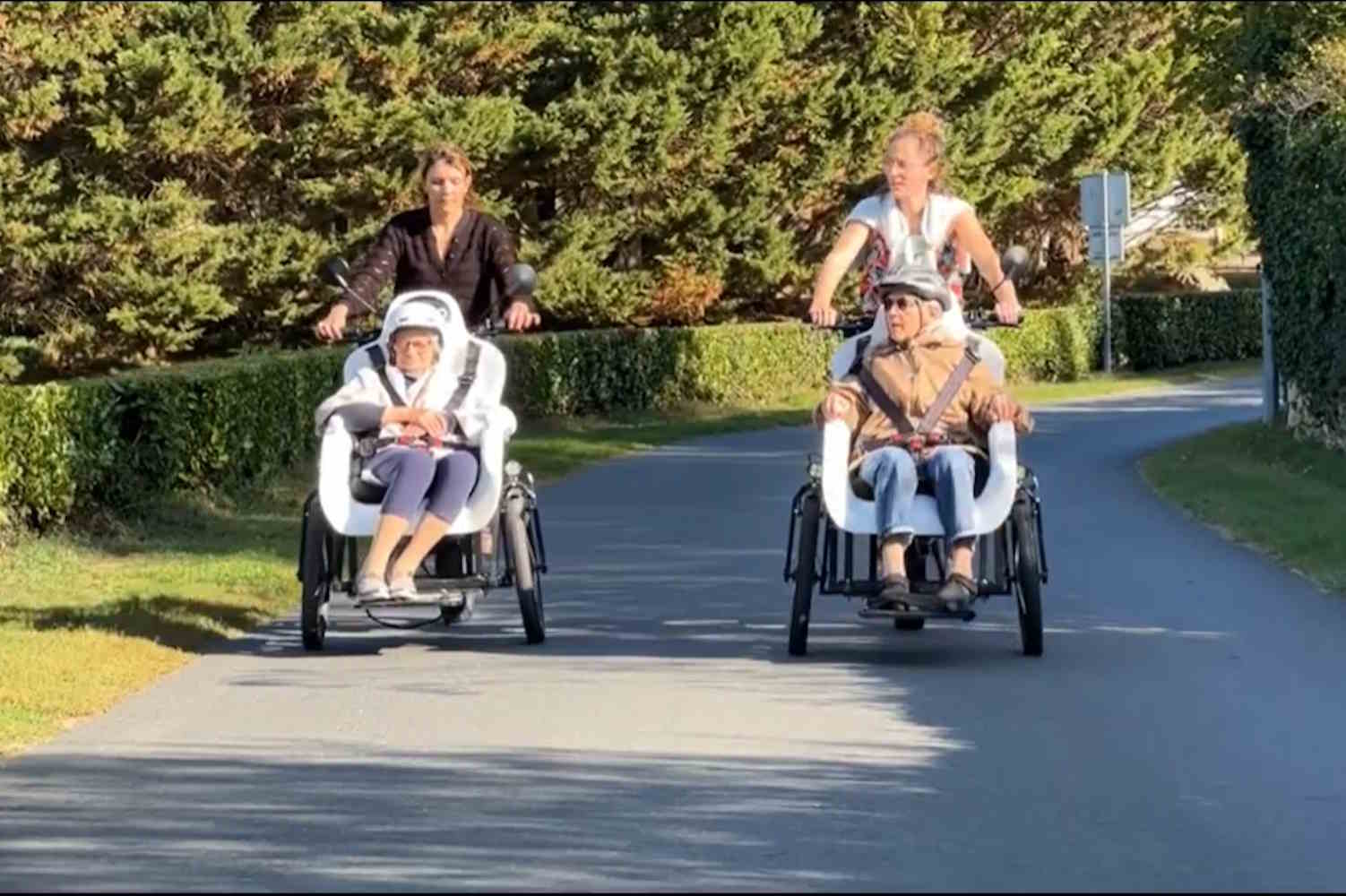French company Moxo creates electric cargo bike for transporting elderly nursing home residents outdoors, offering simple solution to institutional immobility challenges

@moxo
Table of contents
Residential facilities for dependent elderly face a daily challenge that’s both heartbreaking and logistical: immobility. Residents often find themselves confined to their rooms for days at a time, watching the world through windows rather than experiencing it firsthand.
Enter an unexpected solution from France that’s turning heads in the healthcare community. Moxo, a French company, has developed what might look like just another cargo bike at first glance, but is actually something far more meaningful: a three-wheeled electric-assisted bicycle specifically designed to safely transport frail individuals outdoors.
Currently being used in a nursing home in Normandy, this innovative bike represents more than just a new piece of equipment. It’s a bridge back to the outside world for people who thought they’d lost that connection forever. The concept is elegantly simple yet profound: residents can experience the outdoors again, even if it’s just for a brief ride around the block.
Born from personal experience
The story behind this cargo bike is deeply personal. Victor Thoonsen, a former Paralympic athlete, developed the concept alongside his father Jacky following a life-changing event: Victor suffered a stroke as a child. This experience sparked the creation of Moxo, a company dedicated to developing assisted mobility solutions with a clear mission: making movement accessible even to those who have lost their independence.
What sets this apart from your typical cargo bike is its optimization for human transport. The passenger sits comfortably in the front section on a protected seat, while the operator benefits from an electric assist system that makes pedaling effortless. Each bike is handcrafted in France, though the concept could easily be replicated elsewhere.
The project has garnered support from local foundations, territorial agencies, and private donations. While it’s already being used in social contexts across France, there’s no significant regulatory barrier preventing its introduction to Italian nursing homes—or American ones, for that matter. What’s needed are facilities willing to invest in non-standardized solutions and local communities ready to financially support such initiatives.
Technical specifications that matter
The Moxo cargo bike comes with features that make it particularly suited for healthcare environments and could easily find a home in American facilities:
The bike offers electric-assisted pedaling, making it manageable even for operators without special training. Unlike standard cargo bikes designed for packages and groceries, this one is specifically engineered for transporting people. Its three-wheel design ensures safety and stability—crucial when your cargo is a vulnerable human being rather than a box of groceries.
Each unit is handcrafted in Châteauroux, France, ensuring quality control and attention to detail. The bike produces zero emissions, making it perfect for historic downtown areas, hospital campuses, and public parks where noise and pollution are concerns.
The versatility is impressive: it can be used in nursing homes, facilities for disabled individuals, urban settings, or small communities. Healthcare staff, family members, or volunteers can operate it without special training. Perhaps most importantly, no license or special permits are required for use within facilities or public parks.
While the exact cost isn’t specified, expenses can be offset through foundation grants, donations, or public funding opportunities—something many American healthcare facilities are already familiar with navigating. Maintenance remains straightforward, and replacement parts are standard bicycle components.
A simple solution to a complex problem

@Moxo
This isn’t a miraculous cure-all, but it is something more valuable: useful, concrete, and replicable. Most importantly, it addresses a fundamental human need that too often gets overlooked in institutional care: the ability to move and explore, even when you can no longer do it independently.
The beauty of this solution lies not in its complexity but in its simplicity. Sometimes the most profound innovations aren’t about reinventing the wheel—literally, in this case—but about reimagining how we use tools we already have to serve human dignity and wellbeing.
Source: Moxobike
